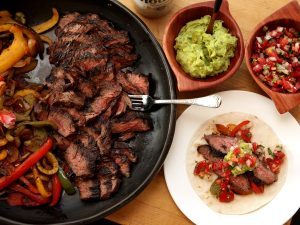Proteins are the main building blocks of your body. Yes, Protein is a fundamental part of our healthy diet. It helps maintaining strong muscles, bones, organs, and skin. So proteins are one of the important things in our everyday life. Animal proteins provide all essential amino acids in the correct ratio for you to utilize them, which makes sense, as animal tissues are similar to our own tissues.
But, high-protein diets have additionally been related to many health problems that are important to be aware of. Protein is not just about quality but also quantity.
Overconsumption of meat: Consuming high amounts of protein will increase risk factors like
| 1. | Weight gain | Intake of excess red meat stores up fat and this will cause excess weight gain. Maintaining a balanced diet will regularize the weight problem. |
| 2. | Bad breath | Super high amounts of protein and a lot of fat will make your breath smell. To dodge this, take in more fruits, veggies, grains, and nuts. Protein releases ketones that make smell breath smell bad. |
| 3. | Dehydration | A high-protein diet will cause the kidneys to produce more concentrated urine, which causes dehydration. This creates many health problems |
| 4. | Constipation | Consuming meat more than your protein diet will cause constipation. Lower your intake of red meat and take more carbohydrates to regularize your constipation problem. |
| 5. | Weak bones | The high-protein level can cause urinary loss of calcium, which is important for our bone development. Taking a lot of calcium will undo this problem |
| 6. | Heart disease | As part of the high-protein diet or taking calories to increase protein level can lead to heart disease. Adding nuts, veggies and poultry intake will lower the risks. |
It’s beneficial for us and for the planet too, people should limit their meat intake these days. A healthy amount to consume is 500 grams per week. If you are following a fair diet in consuming meat, then it’s actually a good thing. If you’re not eating the vegetables that go with it red meat, then that’s the point when it starts to become problematic.
Steps to limit eating more meat:
Pay attention to your meal portions, to guarantee you’re not eating too much of meat. Eating an excessive amount of meat leads to heart disease and strokes and limiting your meat will decrease cholesterol levels. Incorporate various sources of calories into your diets such as beans, fish, nuts, plant foods, fruits, and vegetables instead of depending on meat as these foods contain the supplements our bodies need. Fill your plate with as many of these foods as you can, so they make up 90 percent or a greater amount of your calories.
Follow these steps in order to feel full. Even if you want to eat meat, select lean cuts, remove the skin from the chicken and cook. Choose your food carefully for a healthy life!



















